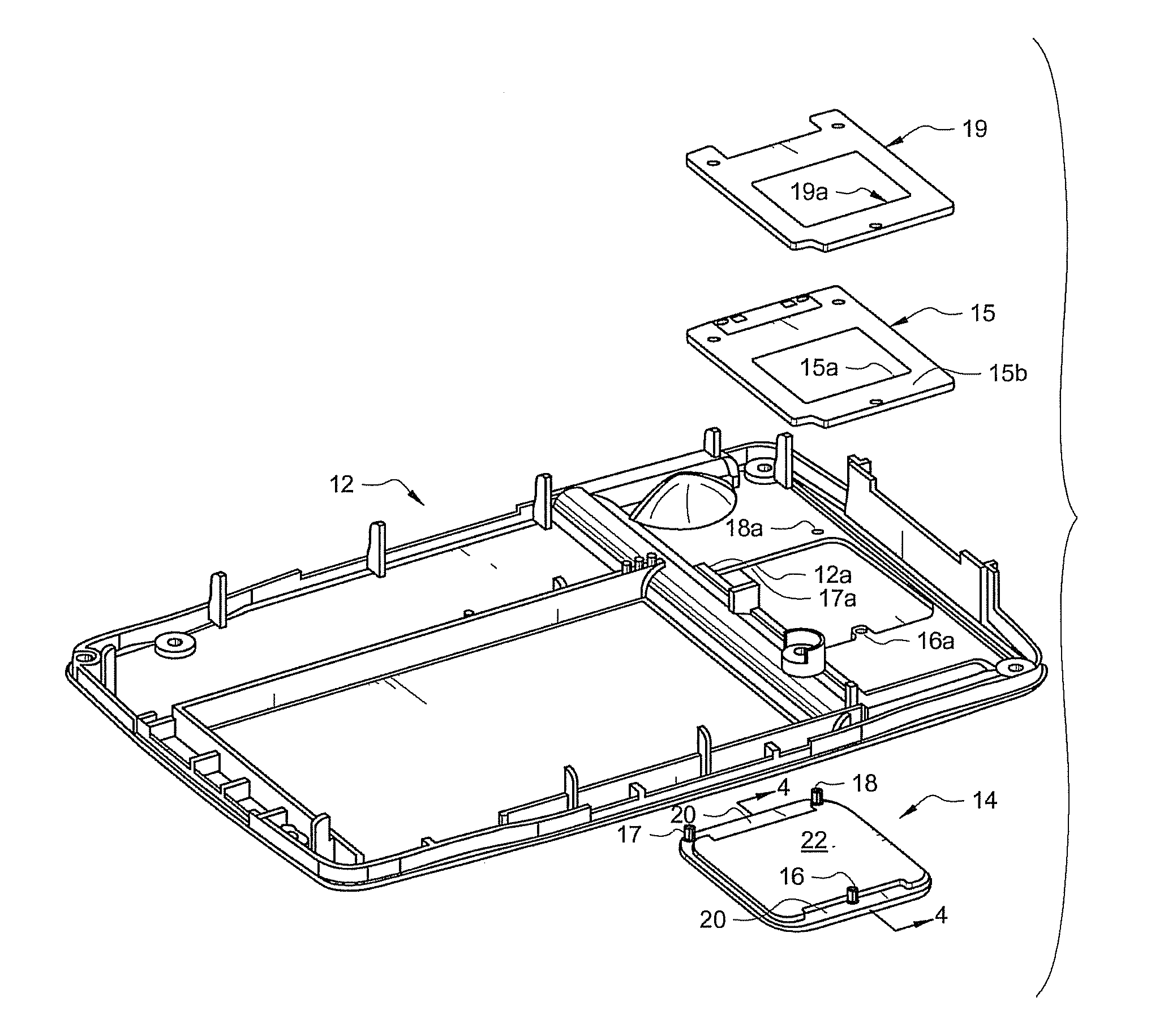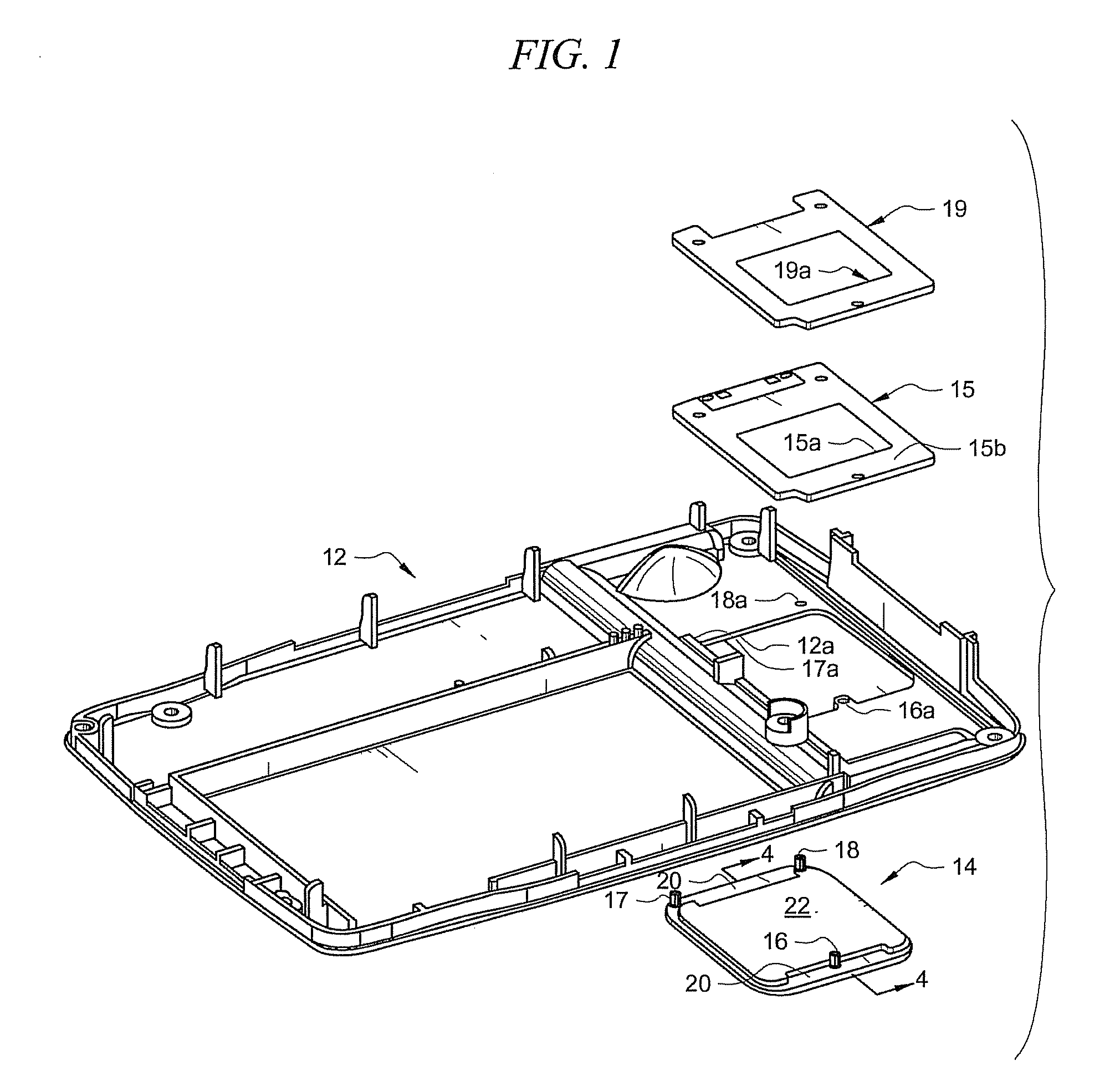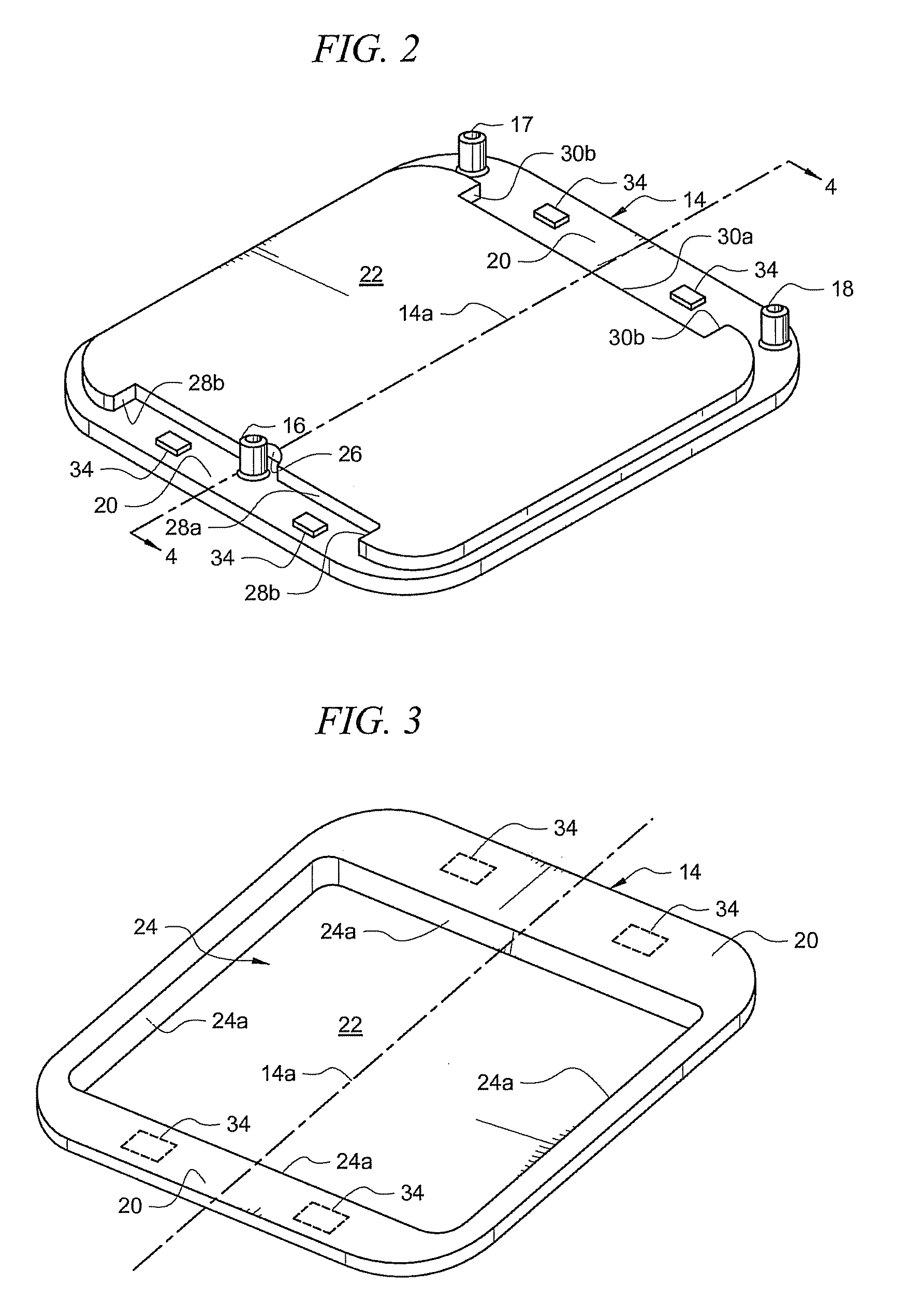PDT Magnifier Camera Illumination
a magnifier camera and magnifier technology, applied in the field of magnifier camera illumination, can solve the problems of remained problematic uniform, symmetrical illumination of objects being viewed, and troublesome use of magnifying glass to enlarge prints, so as to achieve the effect of minimizing light leakag
- Summary
- Abstract
- Description
- Claims
- Application Information
AI Technical Summary
Benefits of technology
Problems solved by technology
Method used
Image
Examples
Embodiment Construction
[0029]U.S. patent application Ser. No. 11 / 308,298, entitled “Magnifier Having Slideably Mounted Camera,” filed by the same inventors on Mar. 15, 2006, which application claims priority to U.S. provisional patent application No. 60 / 595,003, entitled: “Portable Electronic Magnifier,” filed by the same inventors on May 26, 2005, is hereby incorporated by reference into this disclosure.
[0030]FIG. 1 of the present disclosure depicts bottom housing 12 that is engaged at its periphery by sidewalls 14a, 14b, 14c, and 14d of top housing 10 depicted in FIGS. 2, 3 and 4 of the incorporated disclosure. Generally rectangular opening 12a is formed in said bottom housing 12 at a first end thereof so that when bottom housing 12 is attached to top housing 10 of the incorporated structure, opening 12a is in registration with mirror 26 of the structure depicted in the incorporated disclosure. Thus, rectangular opening 12a is understood to be a camera aperture. The user of the device slides opening 12a...
PUM
 Login to View More
Login to View More Abstract
Description
Claims
Application Information
 Login to View More
Login to View More - R&D
- Intellectual Property
- Life Sciences
- Materials
- Tech Scout
- Unparalleled Data Quality
- Higher Quality Content
- 60% Fewer Hallucinations
Browse by: Latest US Patents, China's latest patents, Technical Efficacy Thesaurus, Application Domain, Technology Topic, Popular Technical Reports.
© 2025 PatSnap. All rights reserved.Legal|Privacy policy|Modern Slavery Act Transparency Statement|Sitemap|About US| Contact US: help@patsnap.com



